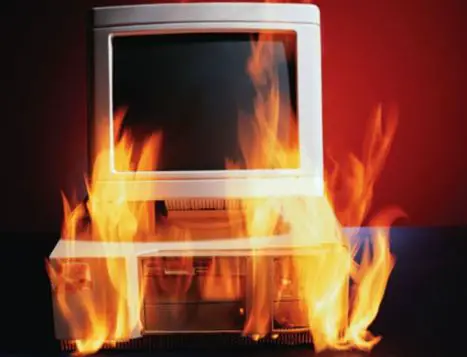
A general complaint of many people, i.e. computer overheating is similar to overheating of other electronic devices while they’re used. In a perfectly working computer, the inner mechanism helps extra heat energy to dissipate to avoid any internal damages to hardware components of the computer. However, sometimes, inner components of laptop computers or desktop computers like transistor, processors or even video chips overheat to hamper their performance.
Despite the fact that modern computers and laptops come equipped with state-of-the-art cooling systems like specially designed fans, computers overheat when something blocks or obstructs the airflow of the ventilation. First reason is the location of your computer. If you’re using laptops on blankets or a limiting surface, chances are that it may block proper air flow. Secondly, if computer fans are not working properly due to an incompetent inner mechanism that fails to pass instructions to the computer to switch ‘ON’ the internal cooling fans when needed, your computer will overheat.
Next, if the airflow inside your computer isn’t sufficient enough to help heat dissipate away, it will keep building locally inside. Another reason that may cause overheating is overworking of certain components. Finally yet importantly, a high room temperature also contributes towards overheating which show as random shutdowns, untraceable errors, blue screens and system freezes.